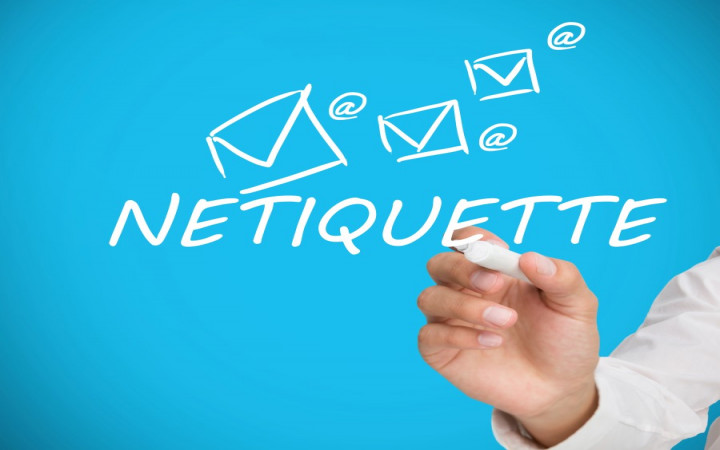Today’s Wonder of the Day was inspired by Wonder Team. Wonder Team Wonders, “Do you have a good netiquette?” Thanks for WONDERing with us, Wonder Team!
Do you like to play on the computer? Exploring the Internet can be an exciting way to spend a few extra minutes every now and then. Do you spend time on interesting educational websites? Or would you rather chat with friends on social media? The Internet is a vast virtual world that is constantly changing.
One of the interesting things about the Internet is how it connects people. It gives us a chance to interact with others all around the world, from all walks of life. Be sure to let your parents and teachers guide you on your online journeys, though. It’s important to learn how to navigate the Internet safely.
Just like in real life, there are certain rules you should follow in terms of your behavior online. Sure, you’re at a computer and no one can really know who you are or what you’re like. But common courtesy dictates that you should behave in certain ways. We call these rules that govern online behavior “netiquette,” which stands for “Internet etiquette.”
In other words, netiquette means having good manners online. You know the rules to follow when you’re in school or at the dinner table. The rules of netiquette can make your online interactions as positive as possible.
So what are the rules of netiquette? There are too many rules of netiquette to cover in today’s Wonder of the Day. But here are some of the more important rules to keep in mind:
Remember the golden rule: treat others as you would wish to be treated. Never forget that those you interact with online are real people with real feelings. This can be easy to forget when you’re just staring at a computer screen. has become a common problem nowadays. Don’t contribute to it—and if you see someone being cyberbullied, reach out to a trusted adult.
Act in the same way online that you would in real life. If you wouldn’t do something in real life, don’t do it online, either! Don’t share your personal information with strangers, and respect everyone’s privacy. This is important to keep yourself and others safe.
Always be aware of where you are. When you visit a new website, take some time to look around. Get a feel for how others behave and participate. This will help you get an idea of whether you want to participate and how to do so properly.
Use your writing skills! Using abbreviations like “lol” (laugh out loud) or “brb” (be right back) are common online. And it’s okay to abbreviate and be informal when talking with friends online. However, if you’re writing an email, blog post, or other communication that could be widely read, it’s important to use the writing skills you learn in school. This helps you communicate clearly. You should also be careful about how you use emojis. Make sure you know what an emoji means before you use it!
Share your knowledge! The Internet exists to help all users gain knowledge. If you’re an expert in an area, don’t keep your knowledge to yourself. Share it with others, so that everyone can benefit. When sharing something another person made, be sure to give them credit. It’s important not to pass off someone else’s creation as your own.
DON’T SHOUT! Use of ALLCAPS is the Internet equivalent of shouting, so don’t use ALLCAPS unless you really intend to be SHOUTING something over the Internet.
Don’t spam others. If you receive a joke via email, feel free to share it with a few friends who you know appreciate those types of emails. Don’t, however, forward it to everyone in your address book. Many people don’t enjoy receiving emailed jokes or have time to read them.
Those are just a few of the rules of netiquette. The rules change over time, too, as technology advances and new uses are found for the Internet. If you use common sense and treat others the way you want to be treated, you’ll do fine!
Standards: CCRA.L.3, CCRA.L.6, CCRA.R.1, CCRA.R.2, CCRA.R.4, CCRA.R.10, CCRA.SL.1, CCRA.W.3, CCRA.W.4, CCRA.L.1, CCRA.L.2




